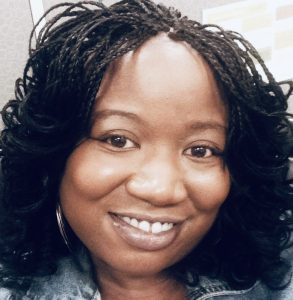That eye-opening experience led Shannon to pursue a Ph.D. at the iSchool, where she has spent the past three years researching how libraries have become critical access points for social services, often without formal systems in place. “There is a disconnect,” she explains. “Many librarians are unprepared to handle complex social issues, and many social workers don’t realize libraries are becoming hubs for this kind of work.”
Shannon was accepted to the Ph.D. program and awarded a fellowship through the American Library Association, thanks in part to the guidance of her advisor, Dr. Renate Chancellor. “From day one, the support here has been incredible,” Shannon says. “The iSchool has this culture of experiential learning, from the classroom to faculty meetings to writing and winning grants.”
Her research focuses on a key question: Why do vulnerable populations turn to libraries for help, and what does that mean for the future of the profession. “People come in and share their entire life stories with librarians. They are looking for housing, jobs, childcare, mental health support,” she says. “But most librarians aren’t trained social workers. That’s a gap we need to address, either by building it into education or hiring licensed professionals.”
Thanks to a grant from the Reference and User Services Association, Shannon has traveled to San Francisco, where the first public library social worker was hired in 2009. “She now leads a team of peer navigators, people who have experienced homelessness and are trained to support others,” Shannon says. “It has become a workforce development pipeline. Seeing it firsthand gave me a richer understanding than I could get from reading alone.”
Shannon’s upcoming fieldwork will take her to public libraries in Brooklyn and Washington, D.C., with hopes to expand her study to Denver and beyond. She is also beginning to teach guest lectures on social work in libraries and plans to pursue a faculty role after completing her degree.
Through it all, she credits the iSchool’s hands-on, people-first approach. “I have earned two other degrees, and I have never felt so supported,” she says. “Everyone here, from faculty to the dean to the custodial staff, knows your name. They want you to succeed.”
For Shannon, blending librarianship and social work isn’t just academic. It is personal, timely, and deeply needed. “This is about meeting people where they are,” she says. “And right now, that place is the public library.”
 hen Shannon Crooks G’18 took a job at a Maryland public library after earning her master’s in library science through the iSchool’s online program, she didn’t expect her background in social work to be just as essential. “They hired me as a public service specialist, but what they really needed was someone who could handle the social work happening in the building,” she says. “I started seeing homelessness, poverty, mental health crises, everything I had seen in my social work career but now in a library setting.”
hen Shannon Crooks G’18 took a job at a Maryland public library after earning her master’s in library science through the iSchool’s online program, she didn’t expect her background in social work to be just as essential. “They hired me as a public service specialist, but what they really needed was someone who could handle the social work happening in the building,” she says. “I started seeing homelessness, poverty, mental health crises, everything I had seen in my social work career but now in a library setting.”